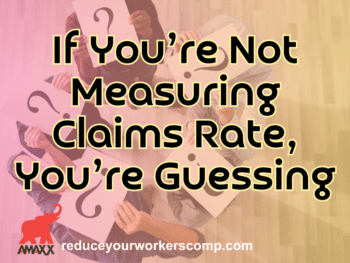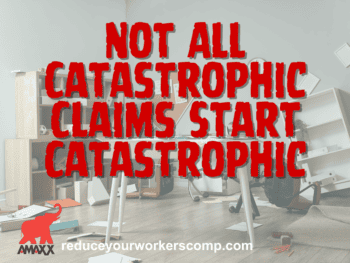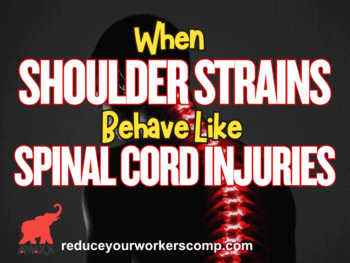
Step into My World – The Life of a Claim Handler
Over the years, I have investigated workers’ compensation losses and have heard bizarre stories of personal injury and the circumstances surrounding accidents. If someone asks me if I have seen everything in workers’ compensation, I have to answer an emphatic “NO!” Chances are a bigger and more unbelievable instance has yet to cross my desk, and it will be my job as the claim handler to determine what happened. For those employers without the luxury of video surveillance, I go by witness accounts and attempt to piece the circumstances of the injury.
Click Link to Access Free PDF Download
“How Do I Get My Adjusters To Follow My Account Handling Instructions?”
Every employer has a designated person to report claims. The first phone call I make after getting the claim is to this person. Today, we will call her Sally. I call Sally and ask her if this is all that is known about the injury. She says, “yes,” and that all details are included in the injury report.
That may be correct, but I know the report is missing information. I rephrase the question about the exact timeline of events:
- Who was injured?
- Did the worker tell someone?
- Did the worker go to the clinic alone or did someone drive?
- Do you know about any prior injuries to the claimant’s knee?
If you the employer, do not know the particulars about the injury, then be clear on that at the outset.
Just the Facts Ma’am
I can name countless times where an employer reports to me there are no witnesses to an injury. Then I interview the injured employee who provides several names as witnesses. I then talk to those individuals and ask about their account of events, and more times than not they witnessed the incident or arrived shortly thereafter.
Perhaps the employer did not ask about witnesses at the time of reporting and was not aware of any. Maybe the internal injury questionnaire does not have the space to write witness names. In some cases, the employer may intend for the claim to sound less substantial.
The Clock is Ticking – Failing to Make a Timely Injury Report
I sometimes get a claim with an injury date of a month earlier, or even a year. Maybe this is an error, but if someone approaches you as an employer and reports being hurt, a claim should be filed immediately. Do not wait and see if they are actually injured.
The employer needs to call it in because I will question the injured employee about dates. Maybe the report was completed on the injury date and was sent to your agent or broker. Agents receive a lot of paperwork from their clients. Just call it in, and if it is sent to your agent, follow up with them. The sooner the claim reaches the carrier, the better.
The Devil is in the Details
Do you know of any outside activities the claimant is involved in? I like to ask employers this question to see how much they know about their employees. This kind of tip proves very helpful in a case and investigation. However, if you as an employer cannot be sure about a tip, then tell us.
Avoiding Spoliation of Evidence – Saving Money through Subrogation
For those employers with moving machinery, admit if the safety guards were off at the time of injury. The employee is going to tell us either way. The guard is there to protect workers, so the worker is fully aware if it is missing. Maybe this leads to a design flaw that our subrogation department can investigate so we can recoup claims dollars spent on this injury. Modifying safety guards can lead to very serious injury, and the costs associated with that loss are far more than any profit you can attain by changing the functionality of machinery.
Conducting a Complete and Accurate Investigation
If you have internal reporting or accident investigations, then I commend you. You are on the way to becoming more proactive at handling losses. We frequently discuss reporting, trends, and identifying injury areas. If you are not internally reporting, then that is okay also.
Conclusions
In the world of workplace injuries, a lot of people on the outside think that the carrier must worry only about the injured employee’s honesty, but the integrity of the employer is paramount. In any case, the truth will prevail. If all parties are honest in the beginning, it makes handling the claim that much easier for everyone involved.
Amaxx LLC is a workers’ comp educational company focusing on cost containment systems to help employers reduce their workers’ comp costs by 20% to 50%. Amaxx offers Your Ultimate Guide To Mastering Workers Comp Costs, a comprehensive step-by-step manual of cost containment strategies based on hands-on field experience, and is the Certified Master of Workers’ Compensation designation through the Amaxx Workers’ Comp Training Center.
Workers’ Comp Roundup Blog: https://blog.reduceyourworkerscomp.com/
Amaxx WC Training Center: https://workerscomptraining.com
©2019 Amaxx LLC. All rights reserved under International Copyright Law.
Do not use this information without independent verification. All state laws vary. You should consult with your insurance broker, attorney, or qualified professional.



























